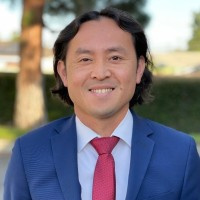 Universal City Felony Lawyers, California
Universal City Felony Lawyers, California
Sponsored Law Firm
-
 x
x

Click For More Info:
-
Nghi Lam, Attorney at Law
17111 Beach Blvd. Suite 212 Huntington Beach, CA 92647» view mapCriminal Defense Law Results-Oriented Legal Representation
We pride ourselves on being aggressive in the courtroom while also being responsive to our clients’ needs.
800-774-3671
Sponsored Lawyers
1-5 of 5 matches
Criminal, Expungement, Misdemeanor, Felony
Making a difference in the lives of others, helping them to solve some of life’s most complex problems and maneuver through adversity are reasons why I commit my life’s work to lawyering. I graduated number one in my law class and was a first time California bar passer in 2013. However, my true reward is working within my purpose to make actual change in everyday people’s lives. After graduating from Howard University's School of Communications and working for several years in television news, I found my way back to law with the desire to use justice to make a positive impact on people’s lives. This is why I focus my criminal law practice on pretrial diversion and post conviction. I am the lawyer who advocates for the person who simply needs a second chance because they are hamstrung by a mistake or poor decision; however, they are truly trying to make their way towards a path of progression. I pride myself on being a thorough, diligent and aggressive advocate for my clients. I understand the need to educate my clients so they are empowered by understanding their rights, when those rights have been invaded and how to seek relief. Many of my reviews are from clients expressing their gratitude for making a difference in their lives and handling their case with passion and dedication. I'm committed to restorative justice that will be transformative of people's lives and the communities in which they live.
(more)Criminal, Expungement, Felony
Proudly taking criminal cases out of Beverly Hills California.
(more)


 Nghi Lam Huntington Beach, CA
Nghi Lam Huntington Beach, CA Practice AreasExpertise
Practice AreasExpertise



